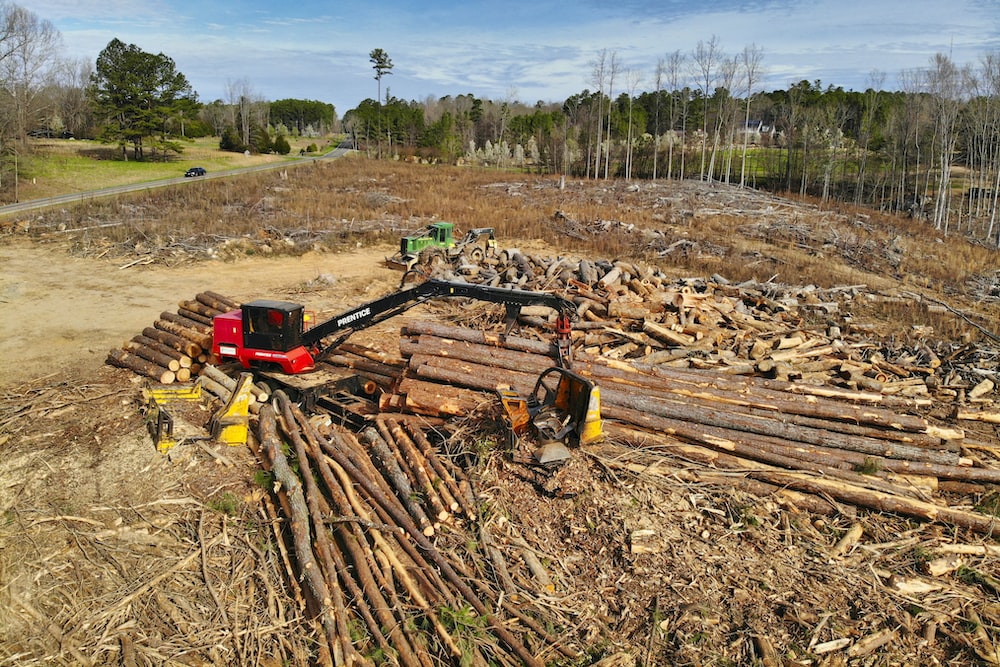President of Kenya, H.E William Ruto, has reversed a six-year logging moratorium in an effort to increase employment prospects. Environmentalists are worried about the impact on Kenya’s delicate ecosystems and woodlands, while supporters of the move underline the possibility for job development.
The logging moratorium was first implemented in 2017 to reduce deforestation, safeguard biodiversity, and stop climate change. While the prohibition was in effect, activities to encourage reforestation and advance sustainable forest management were supported. The government had to reconsider its stance due to the economic effects of the prohibition, notably how it would affect livelihoods and the timber industry.
The main motivation behind abolishing the logging ban is to boost economic development and offer Kenyan citizens more employment opportunities. The timber industry contributes significantly to the nation’s economy and employs a large number of people, especially in rural areas. The decision to eliminate the prohibition is considered as a way to revitalize the sector and ease Kenyans’ concerns about unemployment.
Lifting the prohibition on logging is supported by those who believe that environmentally conscious logging can coexist with controlled, sustainable logging operations. They support a sensible strategy that permits wood harvesting while preserving the long-term survival of forests through prudent management and reforestation initiatives. They contend that this strategy can assist the economy while preserving Kenya’s natural resources.
Environmentalists are worried about the possible drawbacks of lifting the logging moratorium, though. They contend that careless logging can result in deforestation, habitat loss, soil erosion, and biodiversity loss. Because they store carbon dioxide, forests are essential to preventing climate change, ensuring sustainable development and the health of ecosystems and societies.

It is crucial that the government enacts and enforces strict laws and monitoring procedures in order to address these concerns and strike a balance between job growth and environmental conservation. The negative effects of timber extraction on the environment can be reduced by implementing sustainable forest management techniques, such as selective logging, replanting initiatives, and the protection of ecologically sensitive regions. The development and implementation of efficient laws and procedures that support both economic development and environmental sustainability depend heavily on cooperation between the government, environmental organizations, and the timber sector.
The removal of the logging ban should also be supported by initiatives to diversify the economy and provide impacted people with new prospects for employment. Investments in environmentally friendly sectors like eco-tourism, renewable energy, and agroforestry can offer workable substitutes that advance economic development without compromising environmental protection.
In order to promote a wider knowledge of the potential trade-offs between employment creation and environmental issues, public participation and awareness initiatives are essential. Stakeholders can cooperate to identify solutions that strike a balance between economic growth and environmental preservation by educating the public about the value of forests and the necessity for sustainable practices.
President H.E William Ruto lifted Kenya’s logging moratorium, which represents the government’s goal of promoting job creation and economic progress. While proponents contend that controlled logging methods and environmental preservation are compatible, environmentalists have highlighted concerns about deforestation and habitat loss that should not be disregarded. It is necessary to enforce strict laws, employ sustainable forestry management techniques, and make an attempt to diversify the economy in order to strike a balance between the production of jobs and environmental sustainability. These difficulties can be overcome by engaging in inclusive discussion, working together, and committing to the responsible stewardship of Kenya’s natural resources. This will allow for the pursuit of sustainable development that is good for the economy and the environment.




